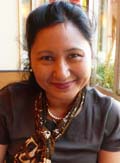
|
Theresa W. Devasahayam is Fellow and Gender Studies Programme Coordinator at the Institute of Southeast Asian Studies (ISEAS), Singapore. Her books include Gender, Emotions and Labour Markets: Asian and Western Perspectives, London: Routledge, (2011) (co-authored with Ann Brooks); The Singapore Women's Charter: Roles, Responsibilities and Rights in Marriage, Singapore: ISEAS (2011) (editor); Gender Trends in Southeast Asia: Women Now, Women in the Future, Singapore: ISEAS (2009) (editor); and Working and Mothering in Asia: Images, Ideologies and Identities, Singapore and Copenhagen: National University of Singapore Press and Nordic Institute of Asian Studies (2007) (edited with Brenda S.A. Yeoh). She has also contributed to the following journals: Journal of the Asia Pacific Economy, Women's Studies International Forum, Asia-Pacific Population Journal, Singapore Journal of Tropical Geography, Asian and Pacific Migration Journal, and Asian Studies Review.
|
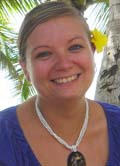
|
Hilary Gorman holds a Master's degree from the University of Victoria, British Columbia, Canada. Her master's thesis focused on the lives and experiences of young women street sex workers in Surabaya, Indonesia. Since completing her master's in 2008 she has been working as a Research Officer for the Pacific Islands AIDS Foundation (PIAF). She recently completed a study that qualitatively explores the experiences and perspectives of HIV-positive women in Fiji and Papua New Guinea. She is currently coordinating a participatory research project that focuses on experiences of treatment and medical care among people living with HIV in the Pacific Islands region. |
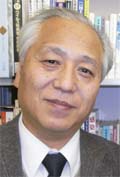
|
Seiichi Ichikawa's research background is in the epidemiology of communicable diseases and he has been a Professor in the School of Nursing at Nagoya City University since 2003. He has conducted fieldwork in Pakistan, Sri Lanka, Cambodia, Iran and Mongolia but the focus of his work since 1995 has been in working with gay groups in conducting research and interventions in relation to HIV in Japan. He currently heads the Study Group on the Development of Community-based Prevention Interventions for MSM.
|
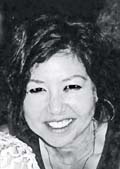
|
Linda Ikeda (formerly Ikeda-Vogel) received her MSW from UCLA, and her PhD in Social Welfare from the University of Hawai'i at Manoa. She has worked with and for immigrant and refugee API battered women and their children, the suicidal and self-harming, addicted mothers working to regain custody of their children, and mahuwahine. From 2005 to 2010, Linda was connected with Kulia Na Mamo, Hawai'i's only transgender-focused nonprofit, where she served as Project Director on a federally funded substance abuse/HIV/hepatitis prevention project. Since 2006, she has lectured for UH Manoa's Women's Studies Program, most recently covering Feminist Research Methods. |

|
Elena Jeffreys, Scarlet Alliance President 2006–2011. Elena is a sex worker and member of the Commonwealth Attorney General Roundtable on People Trafficking (2008–). Elena has been a peer educator with street-based sex-worker projects for injecting drug users in Perth (1997–2000), Brisbane (2003–2005) and Sydney (2005–2007), and a community development consultant with sex workers in Papua New Guinea (2005), Mongolia (2007–2008) and Indonesia (2009). Most recently Elena presented 'HIV and Sex Worker Criminalisation in Australia' at the Bali ICAAP International AIDS Conference (2009) and on 'Australian Sex Workers' Organising for Health and Human Rights' at the Pusan ICAAP International AIDS Conference (2011). Elena is currently the President of Scarlet Alliance, Australian Sex Workers Association.
|

|
Emerald King is a PhD candidate at the University of Tasmania in the School of Asian Languages and Studies. Her thesis focuses on masochism in the work of Japanese women writers from the 1970s to present day. She was a Japan Foundation Fellow from 2009-2010 and studied at Ochanomizu University in Tokyo, Japan.
|
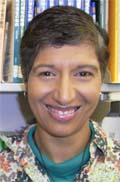
|
Jane Koerner is based in Japan at Nagoya City University. Jane's background is in health promotion and she has been involved in HIV-related programming and research in Australia and Japan for 20 years. She has been working as a Research Associate in the Study Group on the Development of Community-based Prevention Interventions for MSM since 2005. She is also a Visiting Researcher at the University of Tokyo in the School of Public Health.
|
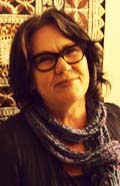
|
Karen E. McMillan is a Research Associate with the International HIV Research Group at the School of Public Health and Community Medicine of the University of New South Wales. A sociologist, she has been involved in HIV social research for the past decade. Since 2007 her work has been dedicated to research and capacity building projects across the Pacific and she is currently engaged in a region-wide mapping of issues related to sex work and HIV prevention. |

|
Jill Miller has been interested in the role played by women prostitutes from East Asia since the early 1980s when she began gathering material in Japanese about the comfort women and karayuki san. Over the last twelve years her research has been on ageing in Japan and she is currently looking at older women and employment in Japan. She has published several journal papers based on her PhD thesis in sociology from ANU on time banks and ageing in Japan.
|
 |
Elke Mitchell is a PhD candidate at the University of Melbourne's Nossal Institute for Global Health. Her doctoral research explores sexually transmitted infection and HIV risk among young indigenous Fijian women in Suva, Fiji. Her research interests include local sexual cultures and practices in the Pacific, including sexual exchange practices, youth sexual and reproductive health as well as gender issues in development. |
 |
Roberta Perkins is author of five books and scores of journal articles on sex work research in Australia. They include: The Drag Queen Scene (Allen & Unwin 1983), Being a Prostitute (Allen & Unwin, 1985), Working Girls (Insitute of Criminology, 1991), Sex Work & Sex Workers in Australia (University of NSW, 1994) and Call Girls> (University of WA, 2007). Roberta has also taught Native American Studies for forty years in Sydney, and she recently returned from one of her frequent visits to reservations in Canada and the United States. |

|
Kirsti Rawstron Kirsti Rawstron is a doctoral candidate at the University of Wollongong. Her current research addresses the effectiveness of United Nations Human Rights Conventions in improving women's rights in Australia, New Zealand, South Korea, and Japan. She holds a Bachelor of Arts (Honours, First Class) in Japanese Language and Culture and a Bachelor of Commerce in Finance from the University of Otago. She spent a year at the University of Tokyo as part of the AIKOM exchange program. Kirsti's latest publication is in Altitude: an e-journal of emerging humanities work (vol. 9, 2011), and she recently presented at the 2011 Equality, Diversity and Inclusion conference.
|

|
Erik Ropers is a research assistant in the Faculty of Arts at the University of Wollongong. His doctoral work in History at the University of Melbourne explored the development of Japanese historical writing dealing with Korean enforced labour and enforced military prostitution during the Fifteen Years War. His current research project explores representations of Japanese soldiers' wartime experiences in 1960s cinema.
|
 |
Larissa Sandy is a Research Fellow in the International HIV Research Program at the Australian Research Centre for Sex, Health and Society, La Trobe University. She conducted her doctoral research with sex workers in Cambodia, focusing on women's agency in sex work, and is author of the forthcoming book Women and Sex Work in Cambodia (Routledge). Larissa has published on sex work and anti-trafficking measures, debt bondage, HIV prevention for sex workers and sex worker activism in Cambodia. Her current research focuses on harm reduction programs for people who use drugs in Indonesia. |

|
Elen Turner is a PhD candidate at the Research School of Humanities and the Arts, Australian National University. Her thesis looks at the feminist publishing industry in India. Her interests include postcolonial literature, particularly that of South Asia, South Asian history, and international women's literature.
|

|